On April 25, 2021, the 4th Academic Symposium on China’ s Resident Income and Wealth Distribution was held at ZUEL. The Symposium was co-organized by the Ministry of Education, the Ministry of Science and Technology, the School of Public Finance and Taxation of ZUEL, IIDPF of ZUEL and Economic Research Journal Press. More than 100 experts and scholars from universities and research institutions including Peking University, Zhejiang University, Fudan University, Renmin University of China, Wuhan University, Huazhong University of Science and Technology, Shandong University, Jilin University, Central University of Finance and Economics, Zhongnan University of Economics and Law attended the conference. The conference was chaired by Professor Zhang Kezhong, Dean of the School of Public Finance and Taxation of ZUEL.

Leaders and guests attending the forum includes: Li Shi, a senior professor of liberal arts at Zhejiang University and a distinguished professor of "Changjiang Scholar" from the Ministry of Education, researcher Jin Chengwu, director of the editorial department of Economic Research Journal, and Professor Wan Guanghua, director of the Institute of World Economy at Fudan University, Yue Ximing, Professor of the School of Finance, Renmin University of China, "Changjiang Scholar" Distinguished Professor of the Ministry of Education, Luo Chuliang, Professor of the School of Labor and Human Resources of Renmin University of China, "Young Yangtze River Scholar" of the Ministry of Education, Professor Xie’E, School of Economics, Shandong University, Professor Yang Canming, President of ZUEL and Director of Academic Innovation and Intelligence Base, IIDPF, and leaders from Wenlan School of Business, School of Social Sciences, Department of Finance etc.
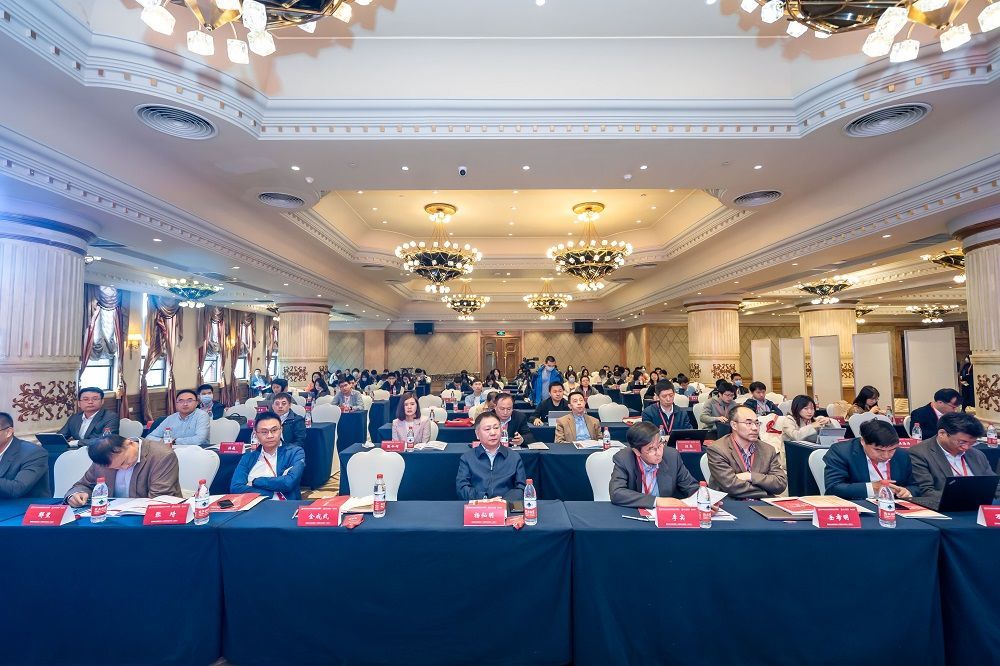
In his speech, Professor Yang, President of ZUEL and Director of IIDPF, firstly extended a warm welcome and expressed his heartfelt gratitude to all experts and scholars. He pointed out that 2021 would see the 100th birthday of the Communist Party of China. 2021 also marks the start of the new journey of comprehensively building a modern socialist country. Adherence to the concept of people-centredness and common prosperity is the greatest leitmotif of the age. Against the backdrop of an increasingly complex international environment and the still prominent problem of unbalanced and inadequate development, how to continue to improve the redistribution mechanism, promote social equity and make more obvious and substantial progress towards common prosperity for all people has become an urgent issue for China at the moment, while implementing the new development concept, building a new development pattern and achieving high-quality development.
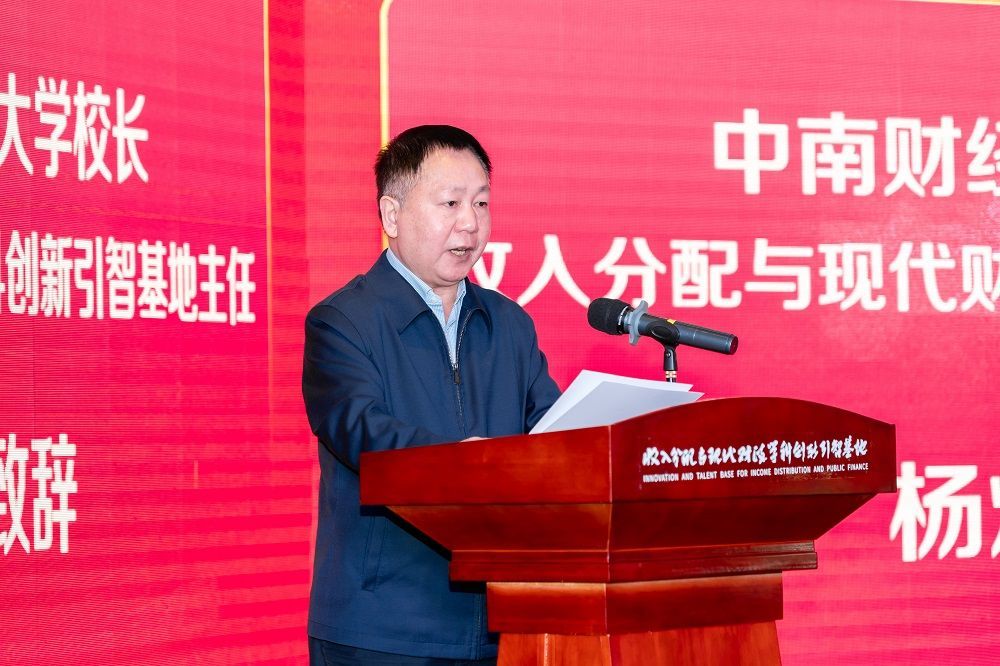
In his speech, Researcher Jin Chengwu, director of the editorial office of Economic Research Journal, pointed out that the issue of income distribution is an eternal theme in economy and society, an important starting point for economic research, and the core issue discussed in classic works of Adam Smith, David Ricardo, Marx and other economists. He emphasized that we should make the best of a historical perspective to view income inequality, and use social phenomena to explore the underlying causes and theoretical logic to conduct research on related issues. Finally, he expressed his expectations for the success of this forum and his welcome to all experts and scholars.
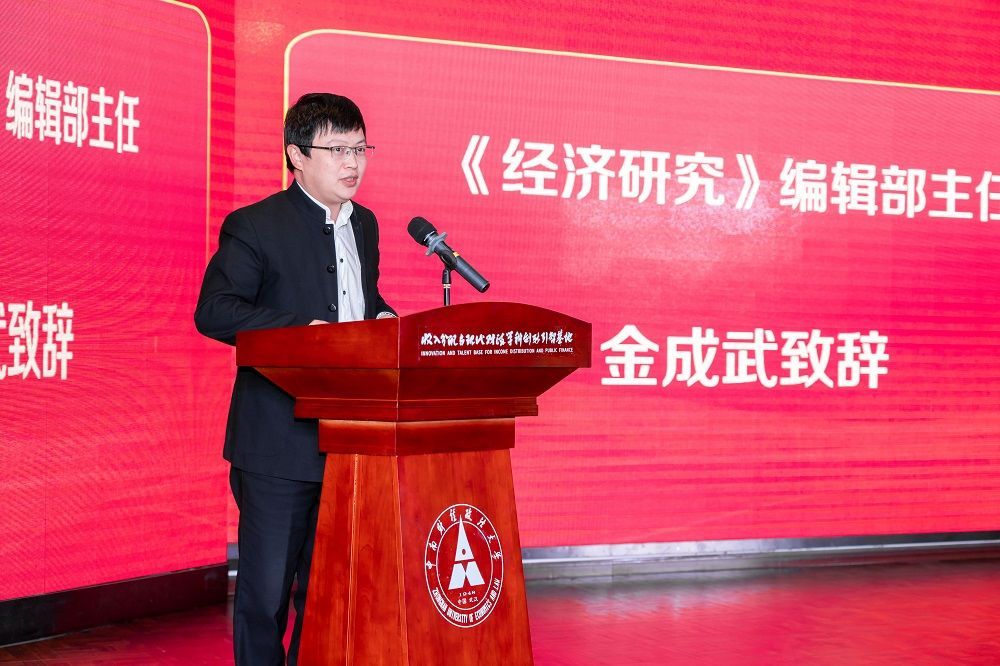
Professor Sun Qunli, Vice Director of IIDPF, presented Survey Report on the Income and Wealth of Chinese Residents (2020) to the guests and scholars. He reported on four areas: survey sample and report composition; household income, wealth and consumption status; household income, wealth and consumption gap; and economic inequality. Professor Sun Qunli pointed out that the survey and empirical analysis found that the gap between income, wealth and consumption in China remained large in 2020. He suggests that the study of income and wealth distribution among Chinese residents should not only focus continuously on the single-dimensional inequalities of income, wealth and consumption, but also on the multidimensional economic inequalities created by these three. Professor Sun also made several suggestions for reducing inequality.
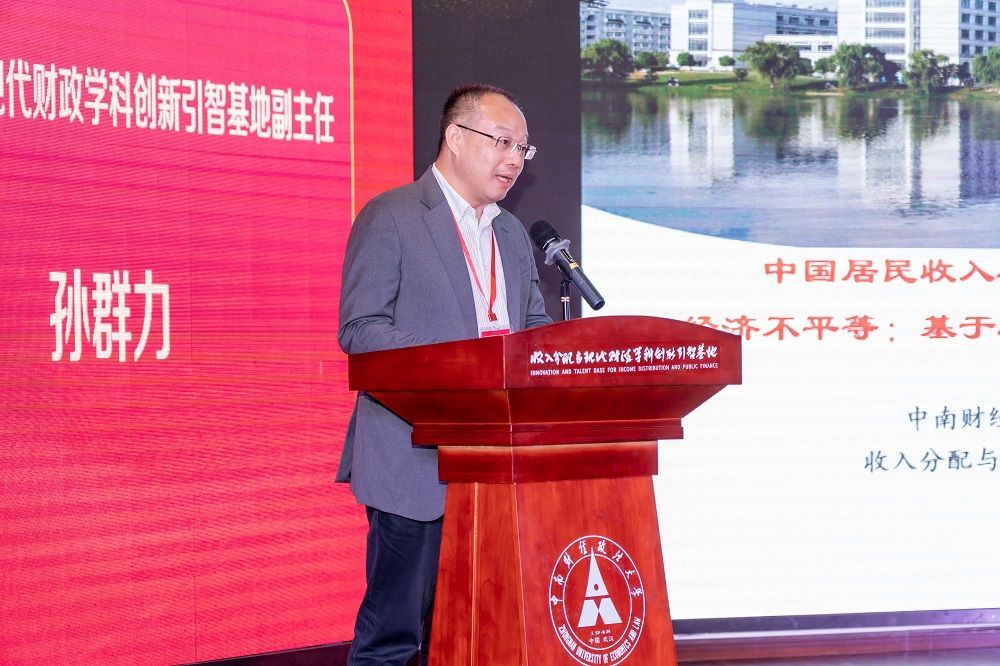
The Academic Symposiums on China's Resident Income and Wealth Distribution has been successfully held for three consecutive years. New members will join in the following symposiums. During the opening ceremony, “Four Universities and One Journal”, including Zhongnan University of Economics and Law, Zhejiang University, Renmin University of China, Shandong University, and the Economic Research Journal, jointly launched the forum's joint launching ceremony. After the discussion, the next forum will be held at Renmin University of China.
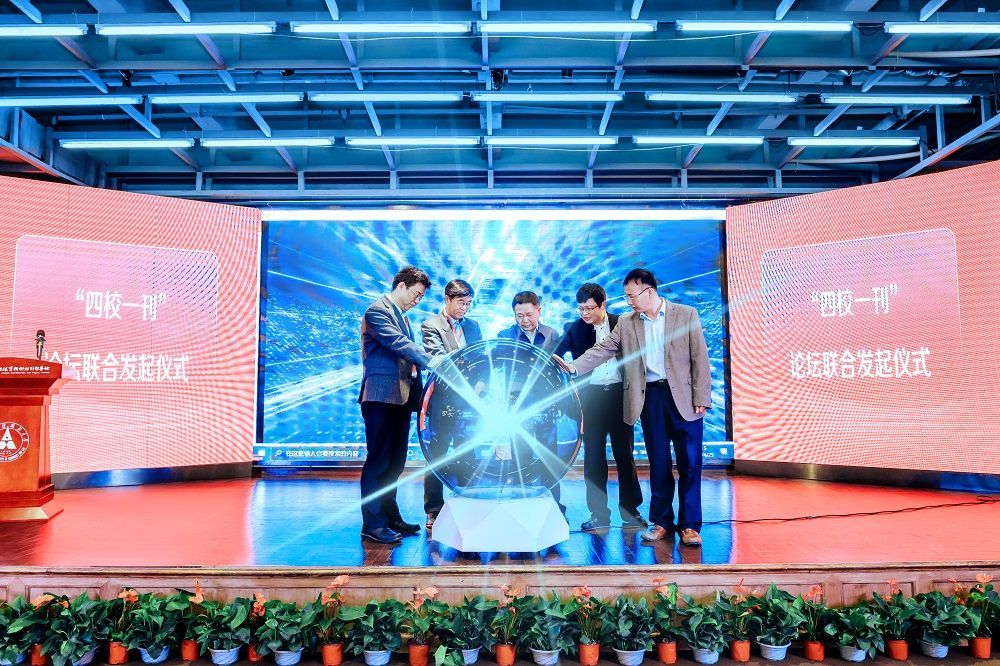
The keynote session in the morning was chaired by researcher Jin Chengwu, director of the editorial office of the Economic Research Journal. Professor Li Shi from the School of Public Administration of Zhejiang University delivered a keynote speech entitled “Accelerating the Reform of the Income Distribution System and Achieving Common Prosperity”. Professor Li Shi shared the three aspects of "the main problems and challenges faced in achieving common prosperity, seeking the path to achieve common prosperity, and how to use income distribution reform as a breakthrough", focusing on the long-term high-income gap between residents in my country. The level, the small scale of middle-income groups, and the further promotion of equalization of public services have been explained, and their views on how to use "income distribution" as a breakthrough point to achieve common prosperity.
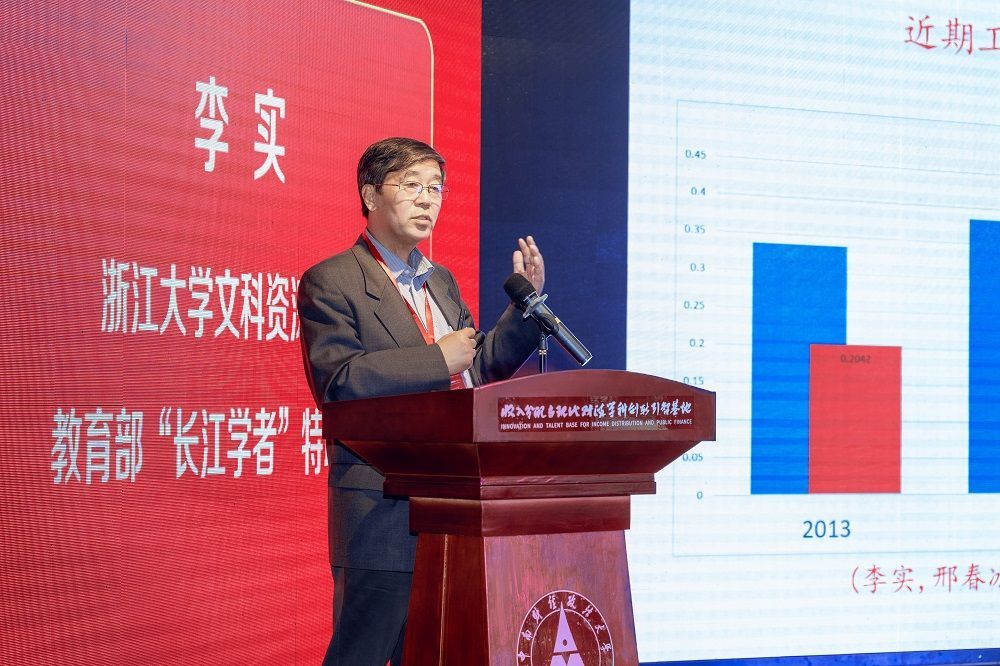
Professor Wan Guanghua, Director of the Institute of World Economy of Fudan University, shared his views on "domestic and international dual circulations" development strategies and income distribution in the light of the current international topical issues. He pointed out that the " dual circulation" strategy was introduced in response to the current "counter-globalisation" context, and was based on "innovation + domestic demand". Professor Wan Guanghua considers that increasing domestic demand and effective investment is the key, while the key to increasing domestic demand lies in the reform of institutional mechanisms. Therefore, the urban-rural divide needs to be removed promptly to promote urbanization and citizenship in order to maintain the investment rate and raise the consumption rate.

Professor Yue Ximing from the School of Finance of Renmin University of China delivered a keynote speech entitled "Analysis of the Reasons for the Improvement in the Redistribution Efficiency of China's Social Security Expenditure in the Past 30 Years". Professor Yue Ximing pointed out that the common analysis of income redistribution effects has limitations, such as being incomparable, misleading and lacking in policy implications. Further efficiency analysis should be done on the benchmark of the maximum income distribution effect that can be achieved. Taking government social security expenditure as the object of his study, Professor Yue empirically analyzed the changes in China's Gini coefficient before and after the subsidy. Under certain conditions of income disparity before the intervention of redistributive policies, for a given scale of redistributive instruments, the income disparity can be minimised by adopting optimal solutions, thus achieving an improvement in the efficiency of social security spending.
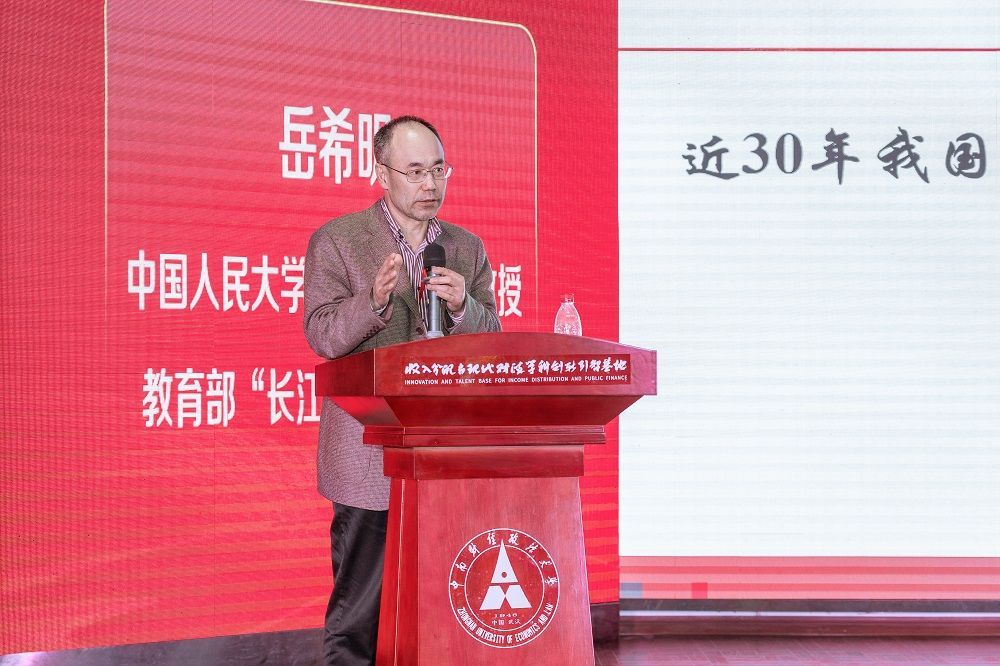
Professor Luo Chuliang from the School of Labour and Human Resources of Renmin University of China spoke on "Intergenerational Property Transfers and Unequal Property Distribution", explaining the impact of intergenerational property transfers on the distribution of property in China, as measured by access to gifts and inheritance or financial support for home purchase. Professor Luo pointed out that at present, China's residents have been fast accumulating property, with the property gap widening rapidly. At the same time, there is a need to study the motivation to accumulate property and the strong incentive to leave legacies, as well as the phenomenon of the "children of the powerful". At the same time, intergenerational transmission affects not only the unequal distribution of property and its dynamics, but also the effects of equity of opportunity and economic policy. Empirical research has found that the characteristics of the head of household and spouse parents have a significant impact on the intergenerational accumulation of property by children and their property inequality, and that intergenerational property transfers will further increase the inequality of property distribution.
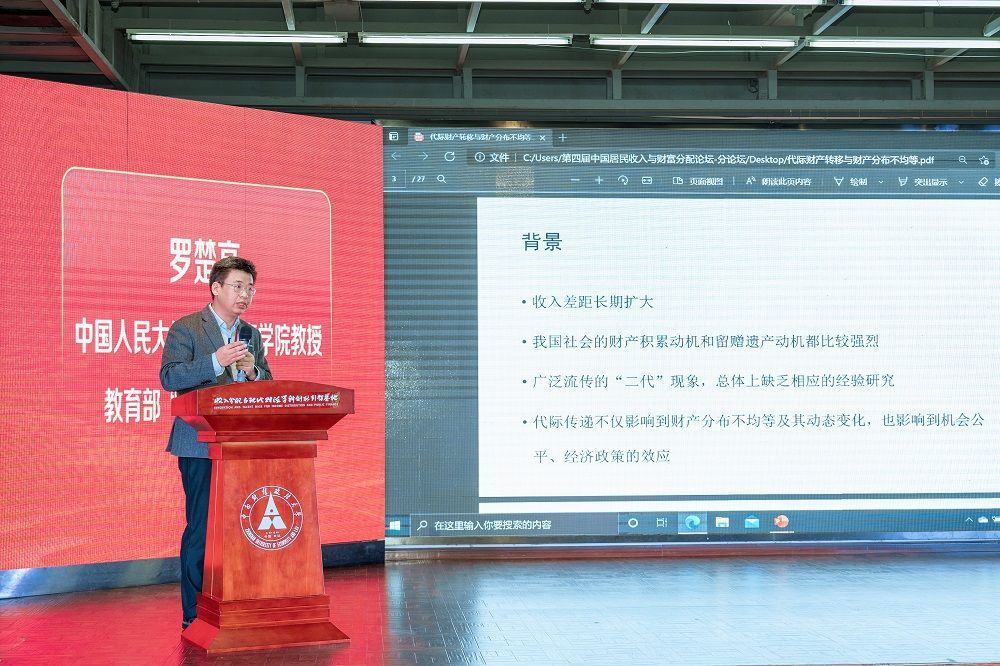
The breakout sessions in the afternoon focused on the topics of tax policy and income distribution, social security and income distribution, macro policy and income distribution, labour market and income distribution, and finance and income distribution. The atmosphere in the sessions was enthusiastic. The scholars at the conference had an in-depth exchange of views on relevant topics and actively expressed their insights.
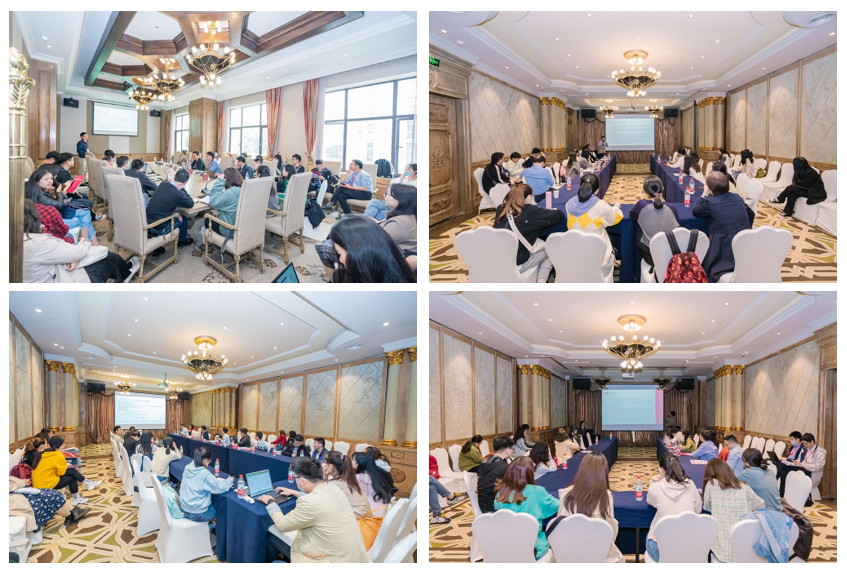
The year 2021 is the year in which China will build a moderately prosperous society and achieve the first 100-year goal, and it is also the opening year in which we will ride on the momentum to start a new journey of building a modern socialist country and march towards the second 100-year goal. At a time when the people of China are forging ahead, innovating and working more actively to promote common prosperity, the issue of income and wealth distribution has become increasingly prominent and important. The forum brought together experts and scholars to discuss the major theoretical and practical issues of income and wealth distribution in China, opening up new horizons, providing new approaches and contributing new perspectives to promote research related to income and wealth distribution in China. It has contributed to the wisdom of the academia to promote the reform of China's income distribution system, to solidly promote common prosperity, and to continuously enhance the people's sense of access, happiness and security.
